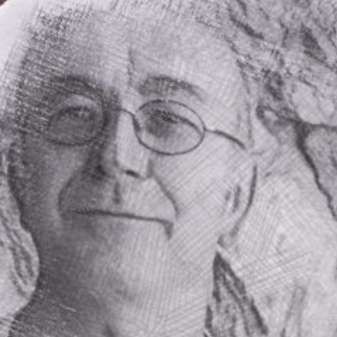It’s rare to see a soloist perform two concertos in a single programme. RSNO Associate Leader William Chandler promised, in his highly entertaining and informative pre-concert talk, that we were in for some very exciting playing from pianist Xiayin Wang. Indeed we were.
Wang responded to the warm welcome with a bow of such length and depth that it would have seemed an affectation in someone not from a culture where bowing is part of life as opposed to performance. Then, without fuss, she launched into the solo opening of Samuel Barber’s Pulitzer Prize-winning Piano Concerto, Op. 38 (1962). Those who know only Barber’s Adagio for Strings (1936) would be startled by this concerto. The strident opening Allegro appassionata doesn’t readily reveal affiliations to any key. By the time Wang had dispensed this passage, in such a no-nonsense way that technical worries seemed banished, the orchestral part began to suggest, rather than claim, some kind of harmonic homeland. There was some lovely woodwind playing where soloists reached searchingly across the principal theme’s wide intervals. As much as virtuosity, it was Wang’s musicality which impressed me. No matter how fiery the passage, she rounded it off sensitively in order to pass, rather than throw, the baton to the orchestra. The cadenza, launched by an immense orchestral climax, certainly fulfilled the titular appassionata aspect. Following the serene Canzone (moderato), which featured some lovely flute playing by Katherine Bryant, the RSNO leapt into the closing Allergro molto, a frenzied 5/8 “chase sequence” of a movement, as described by Chandler. The fact that Peter Oundjian was beating one-to-a-bar perhaps indicates the tempo. RSNO brass were outstanding in their contribution to the excitement. Wang raced up and down the keyboard, fists full of Ginastera-like clusters, until the piece reached what David Kettle’s programme note described as “its glittering breathless ending”.
After the interval Wang returned to perform Aaron Copland’s Piano Concerto (1926). Its two seamless movements illustrate the influence of jazz on the composer. The relationship of stimulus and composition was nicely summed up in Kettle’s programme note, which described Copland as having “refracted the style through his 1920s modernism”. The informality of jazz is absent; there is more evidence of pruning than vamping. However, jazz’s gift of rhythmic vitality is unmistakable. Wang took the light-hearted yet technically demanding left hand ragtime figures in her stride. In the opening Andante sostenuto, her lightness of touch complemented Copland’s descending, almost free-falling figures. As in the Barber, there was some lovely oboe writing, beautifully played here by guest principal Adrian Wilson. With the curse of 20/20 hindsight, I struggled to grasp why this work initially suffered a poor reception, which must have stung its 26-year-old soloist and composer. Played as wonderfully as it was here by Wang and the RSNO it seemed an incontestable feel-good classic. Responding to very warm audience response, Wang offered a sparky rendition of Prelude no. 1 by the third member of the trinity of early to mid 20th-century American music, George Gershwin.
Copland’s Appalachian Spring suite (1945), whose ballet also won a Pulitzer Prize, shines with a feel-good factor similar to that of the Piano Concerto. This eight-movement suite constructed from the original ballet score depicts “ornery folks” in the American musical language which Nadia Boulanger encouraged Copland to develop. Chandler had explained how superimposition of simple three-note chords lessened the directional imperative of the harmony to create the spacious, unhurried sound which many associate with Copland. When this slow opening theme combines with the following Allegro (somewhat reminiscent of Holst’s Jupiter) the work exudes a joy which I thought the RSNO really captured.
If you didn’t already know the story behind John Adams’ Doctor Atomic Symphony (2007) – exploring the tensions behind Robert Oppenheimer’s splitting of the atom, which could end the war, and possibly so much else – the work’s explosive introduction would hint at its dark matter. Dissonant brass and ominous percussion weighed in majestically in the opening “Laboratory”. Principal timpanist Martin Gibson heroically underpinned this frenetic, cacophonous cauldron. William Chandler had explained how the difficult string semiquavers in “Panic” ensured the necessary emotional energy. Possibly surprising tenderness is supplied in “Trinity” which, in the operatic original, sees Oppenheimer contemplate John Donne’s Batter My Heart from his Holy Sonnets. This melody, here given over to solo trumpet, was beautifully rendered to explosive audience acclaim by guest principal Huw Morgan. Amidst Adams’ thrilling din, this moment reflected the introspective, literary side of his subject’s flawed genius.
This was an outstanding concert, but don't take my word for it: listen to it on BBC iPlayer until Friday 3 May.


